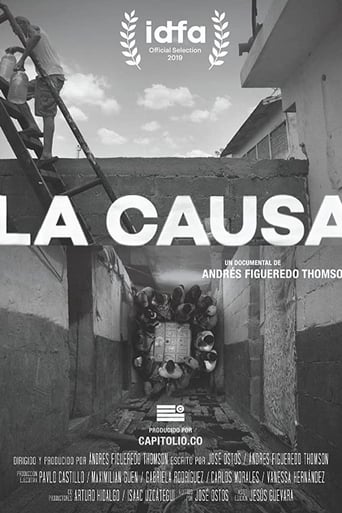Best Venezuelan documentary movies
A curated collection of popular documentary movies from Venezuela.
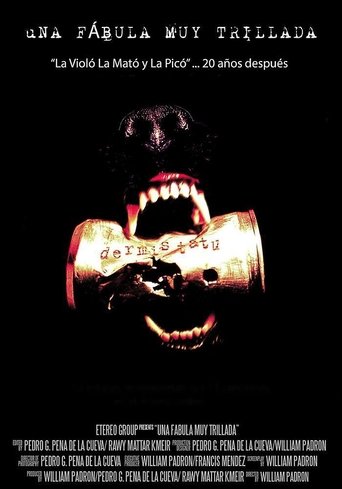
Una Fabula Muy Trillada: The Legacy Of Dermis Tatú (2017)
Una Fabula Muy Trillada: The Legacy Of Dermis Tatú (2017)
Two decades ago, Venezuela's power trio Dermis Tatú released their only album, "La violó, la mató y la picó" ("Raped her, killed her and cut her"). The band was an offspring from the separation of Sentimiento Muerto, and was formed by Carlos "Cayayo" Troconis (voice and guitar), Héctor Castillo (bass) and Sebastián Araujo (drums). The record is still considered by many as the most influential in the Venezuelan rock scene. Twenty years later, Castillo and Araujo remember the stories behind the recording, as a group of the current generation of Venezuelan rockers, not only explain its influence and impact, but also play all the songs from the album, making them their own.
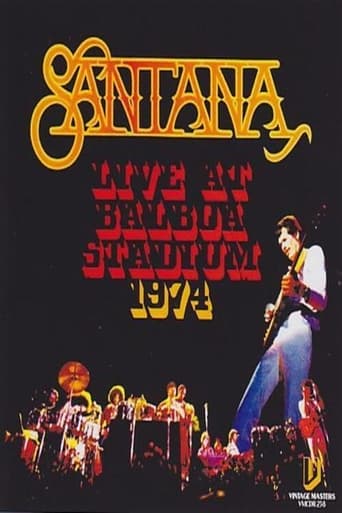
Santana (1974)
Santana (1974)
It records the tour of the legendary Mexican guitarist Carlos Santana in Latin America.
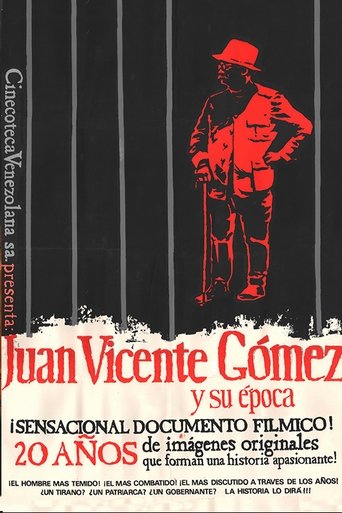
Juan Vicente Gómez y su época (1974)
Juan Vicente Gómez y su época (1974)
Documentary on Venezuela's dictator Juan Vicente Gómez.
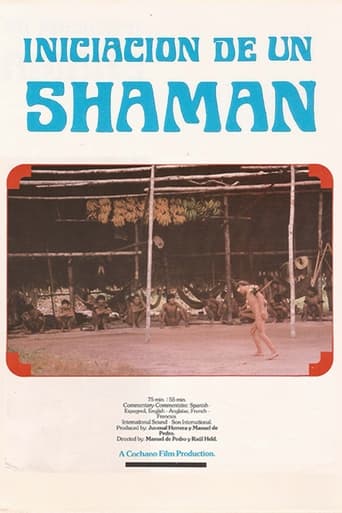
Iniciación de un shamán (1980)
Iniciación de un shamán (1980)
Halfway between fiction and documentary, Initiation of a Shaman tells the story of Rarowe, a young Yanomami who is about to be initiated and must make contact with spirits brought by other shamans. The young man feels the effects of the initiation and always waits until the end to see if he can withstand it. The initiation itself is a rare event and occurs only when the old medicine man is about to die. The ancient rites includes the struggle of the youth with evil spirits which attempt to prevent the old witch doctor from imparting his wisdom to the young man. Hallucinogetic plants are used by the tribe to increase perception. The eerie images depicted are similar to those evoked in the books of Castaneda.

Once Upon a Time in Venezuela (2020)
Once Upon a Time in Venezuela (2020)
Once upon a time, the Venezuelan village of Congo Mirador was prosperous, alive with fisherman and poets. Now it is decaying and disintegrating—a small but prophetic reflection of Venezuela itself.

Araya (1959)
Araya (1959)
"Araya" is an old natural salt mine located in a peninsula in northeastern Venezuela which was still, by 1959, being exploited manually five hundred years after its discovery by the Spanish. In images, the life of the "salineros" and their archaic methods of work before their definite disappearance with the arrival of the industrial exploitation.
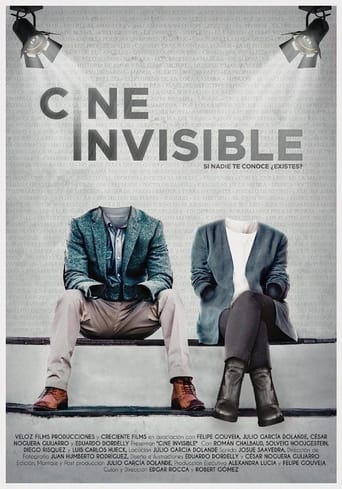
Cine Invisible (2023)
Cine Invisible (2023)
A thesis on the history, the successes and failures of Venezuelan and Latin American cinema as a whole; demonstrating how little interaction there is between Ibero-American cinema
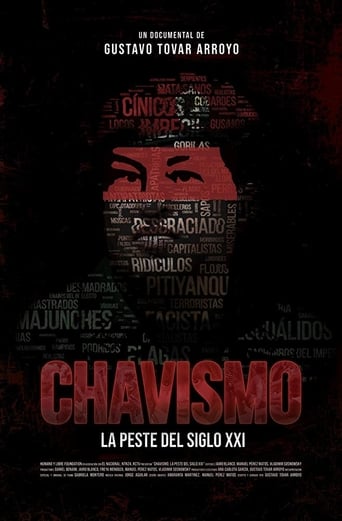
Chavismo: The Plague of the 21st Century (2018)
Chavismo: The Plague of the 21st Century (2018)
An analysis of the causes, social, political, and economic that caused the rise of Hugo Chávez as president of Venezuela; his abuse of power and the response of civil society, including the student movement; his political fall as well as the secrecy that surrounded his illness and the succession of Nicolás Maduro.
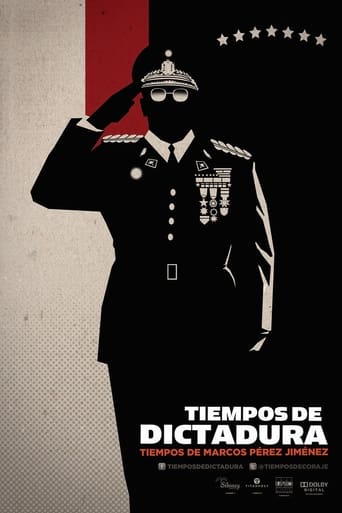
Tiempos de Dictadura, Tiempos de Marcos Pérez Jiménez (2012)
Tiempos de Dictadura, Tiempos de Marcos Pérez Jiménez (2012)
Told through animations, testimonials and pictures, a controversial and dramatic past Venezuelan time.
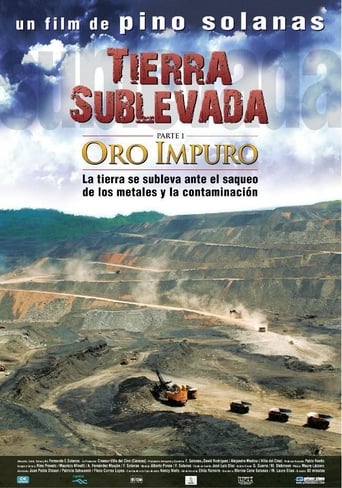
Land in Revolt: Impure Gold (2009)
Land in Revolt: Impure Gold (2009)
After Memoria del saqueo, La dignidad de los nadies, Argentina latente and La próxima estación, Solanas begins with Oro puro a diptych on the plundering of mineral resources (metals and hydrocarbons). This remarkable and powerful documentary denounces the open-pit cyanide mining operations carried out by multinationals in the northwest with the support of politicians, exposes the progressive contamination of soil and water, and exalts social resistance movements through moving individual and collective examples.
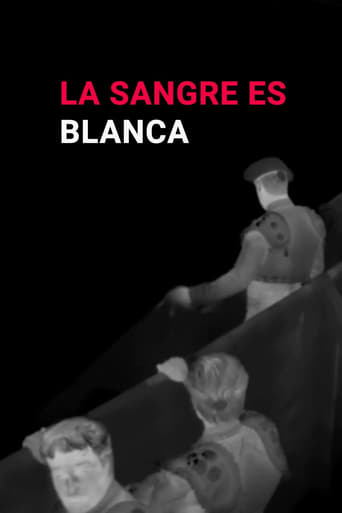
Blood Is White (2020)
Fire on the Marmara (2011)
Fire on the Marmara (2011)
Documentary about the Flotilla to Gaza that was attacked by the israeli commandos in 2010.
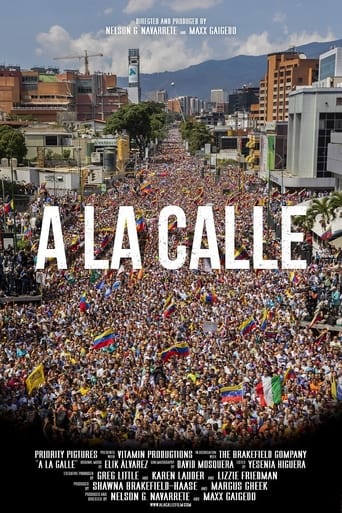
A La Calle (2020)
A La Calle (2020)
A firsthand account of the extraordinary efforts of ordinary Venezuelans to reclaim their democracy from the dictatorship of Nicolás Maduro, whose corrupt and brutal policies have plunged the country into economic ruin. Working with a network of clandestine camera crews, the filmmakers spent three years recording exclusive interviews with key opposition figures including Leopoldo López and grassroots activist Nixon Leal, as well as a host of everyday citizens, and captured the remarkable courage of the Venezuelan people as they unite to restore liberty to their country.
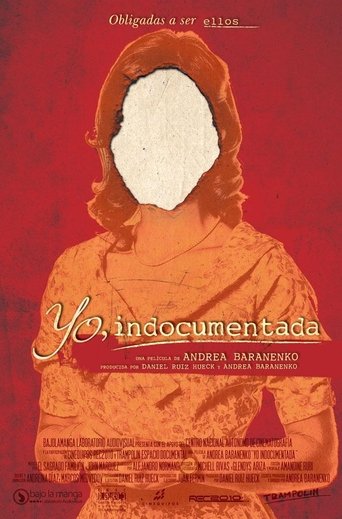
I, Undocumented (2011)
I, Undocumented (2011)
Tamara, Desiree, and Victoria are Venezuelan women who live in Caracas and at first glance have little in common. However, all three share much more than the city they live in: they carry an ID that shows a name that is not theirs. They are transgender women. In Venezuela, you cannot legally change the name you were born with. The women unite and through a series of legal actions and tireless activism for equality, these women will test the willingness of Venezuelan institutions to ensure the basic right of its citizens: the right to identity.
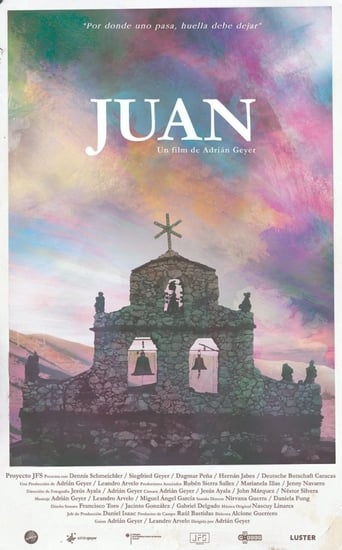
Juan (2019)
Juan (2019)
Searching for answers about his family’s legacy, Adrian starts a journey far away from the city to enter a world full of magic and nature to recover his memories about Juan, a hermit artist who changed his parents’ lives, and thus his own.
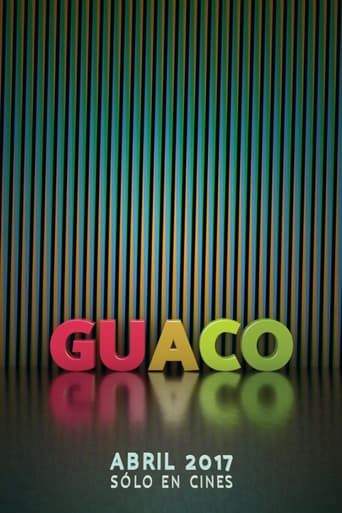
Guaco: Semblanza (2017)
Guaco: Semblanza (2017)
Dcumentary directed by Alberto Arvelo, which is a record for the posterity of as the first five decades of the career as the projection into the future of "La Super Banda de Venezuela". It is related from the present with interesting testimonies and electrifying performances in concert.
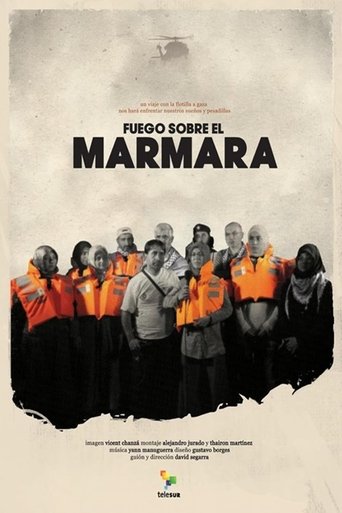
Fire on the Marmara (2011)
Fire on the Marmara (2011)
The plot is about the so-called Freedom Flotilla of Gaza, a group of 8 civilian vessels, which undertook a journey to the Gaza Strip, with the main objective of carrying about 10 tons of humanitarian aid.
Beauty Factory (2014)
Beauty Factory (2014)
From oratory classes to operating room, Beauty Factory follows five girls for four months as they compete for the coveted Miss Venezuela crown; revealing the process that has won Venezuela more international beauty pageants than any other country.
My Friend Hugo (2014)
My Friend Hugo (2014)
Oliver Stone presents a tribute to a friend one year after his death, the friend in question was the Venezuelan leader, Hugo Chávez. The documentary covers the time Stone and Chávez spent while making "South of the Border", when they developed a close relationship; and the testimonies from South America leaders and people close to Chávez to talk about their views on the man and the politician and share some personal stories they had with him.
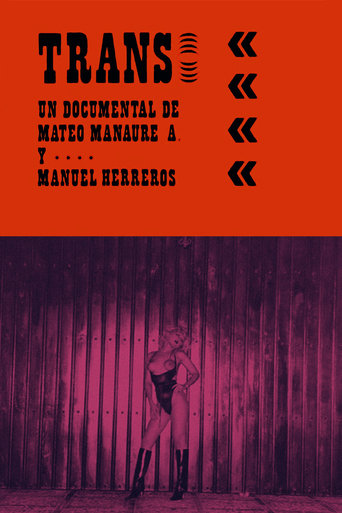
Trans (1983)
Trans (1983)
Trans is a 1982 Venezuelan documentary short film that offers an intimate look into the lives of a group of trans women and drag performers in Caracas, exploring their experiences in a society marked by transphobia and homophobia. Through interviews and performances, the documentary highlights the resilience and dignity of these women in the face of widespread discrimination and violence. Premiering at the Venezuelan National Cinematheque in 1982, Trans is considered a pioneering work in the representation of the trans community in Latin American cinema.
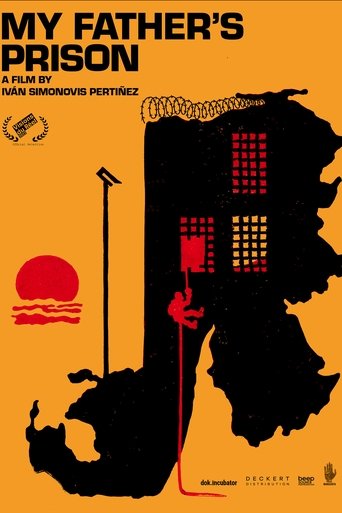
My Father’s Prison (2023)
My Father’s Prison (2023)
When Ivan Simonovis becomes the first and most famous political prisoner in Venezuela, a 15-year period of imprisonment leaves devastating effects on his and his family’s lives. Living in exile as a filmmaker, his son Ivan Andrés crafts a very personal and moving story, using over 25 years of unique family material, showing history from an angle never seen before. A family that had to overcome extreme hardship, a father that has to find his place in life again and a son that faces his traumas by inviting the viewer into the core of a wound that touched both his family and his entire country.
Persona Non Grata (2009)
Persona Non Grata (2009)
Prosecuted as a revolutionary, banned as a priest, arrested as a rebel, celebrated as an artist. This is Frans Wuytack's truly inspiring and overwhelming story. He unchained a social and cultural revolution in the 60's changing the lives of so many people, from the Venezuelan slums to the Belgian Ports. An epic journey made by his son Fabio Wuytack.
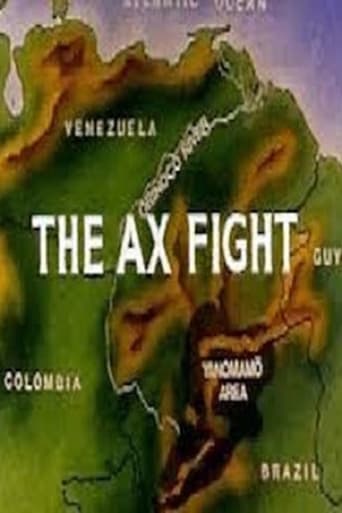
The Ax Fight (1975)
The Ax Fight (1975)
The Ax Fight (1975) is an ethnographic film by anthropologist and filmmaker Tim Asch and anthropologist Napoleon Chagnon about a conflict in a Yanomami village called Mishimishimabowei-teri, in southern Venezuela. It is best known as an iconic and idiosyncratic ethnographic film about the Yanomamo and is frequently shown in classroom settings.
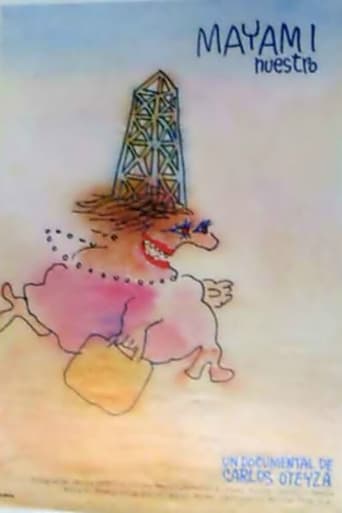
La propia gente (1981)
La propia gente (1981)
This documentary is comprised of three shorts: 'El Afinque de Marín' that follows the musicians of the group Madera. 'Yo hablo a Caracas' about an indigenous leader and his reply to the authorities of the venezuelan goverment regarding the violations towards his people and finally 'Mayami Nuestro' chronicles the relationship of venezuelans during the eighties with the city of Miami.

Reverón (1952)
Reverón (1952)
Directed by Margot Benacerraf, Reverón is a poetic and visually striking documentary that delves into the life and artistic vision of Venezuelan painter Armando Reverón. Set in the sun-drenched coastal landscape of Macuto, where the artist lived in near isolation, the film captures his eccentric lifestyle and unique creative process. Through evocative imagery and a contemplative narrative, Reverón explores his deep connection to nature, his experiments with light and texture, and his profound artistic genius. This seminal work stands as a tribute to one of Venezuela’s most influential painters and a landmark in Latin American documentary filmmaking.
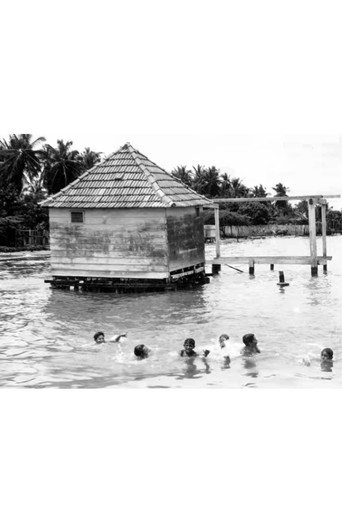
Muchachos bañándose en la laguna de Maracaibo (1897)
Muchachos bañándose en la laguna de Maracaibo (1897)
Muchachos bañándose en la laguna de Maracaibo (English: Kids bathing at the lagoon of Maracaibo) is the second Venezuelan film produced, after Un célebre especialista sacando muelas en el gran Hotel Europa. It was screened at the Baralt Theatre in Maracaibo, Venezuela, on 28 January 1897. The film shows a group of young people, "muchachos", enjoying Lake Maracaibo. Not much is known about the film's production, and scholars question the identity of its director. Though more is known of the contents of this film than its pair Un célebre especialista..., it has not seen as much modern discussion as the latter.
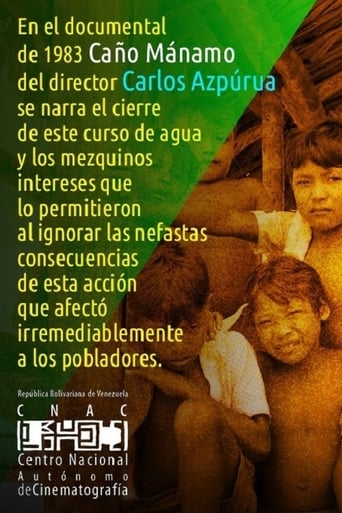
Caño Mánamo (1983)
Caño Mánamo (1983)
A documentary about the building of a damn near Caño Mánamo and the effects it has on the environment.
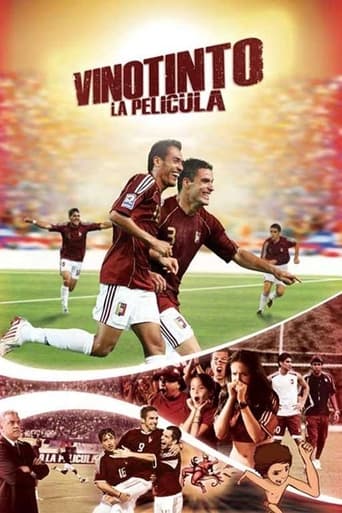
Vinotinto, The Movie (2009)
Vinotinto, The Movie (2009)
In 2002, a team that only knew defeat surprised all of South America with a chain of unexpected victories in the World Cup qualifiers. The players have begun to believe in themselves like never before and the vinotinto shirt is beginning to represent an entire country. A hope, previously unimaginable, is germinating in the hearts of Venezuelans: to qualify for the FIFA World Cup for the first time.
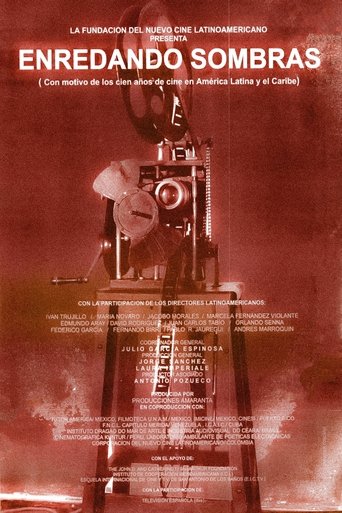
Entangling Shadows (1998)
Entangling Shadows (1998)
Documentary that celebrates 100 years of cinema in Latin America and talks about the origins and the development of cinema in this subcontinent. Its structure is based in 12 short films directed by various Latin American directors. These are: 1) "Los inicios", Iván Trujillo 2) "Cuando comenzamos a hablar", María Novaro 3) "Jugando en serio", Jacobo Morales 4) "De cuerpo presente [Las espirales perpetuas del placer y el poder] Cine Mexicano [1931- 1997]", Marcela Fernández Violante 5) "Cuando quisimos ser adultos", Edmundo Aray and David Rodríguez 6) "Cinema Novo", Orlando Senna 7) "Memorias de una isla, Juan Carlos Tabío 8) "Un grito, 24 cuadros por segundo", Julio García-Espinosa 9) "El día de la independencia", Federico García 10) "¿Sólo las formas permanecen?", Fernando Birri and Pablo Rodríguez Gauregui 11) "Todo final es un principio", Andrés Marriquín.
